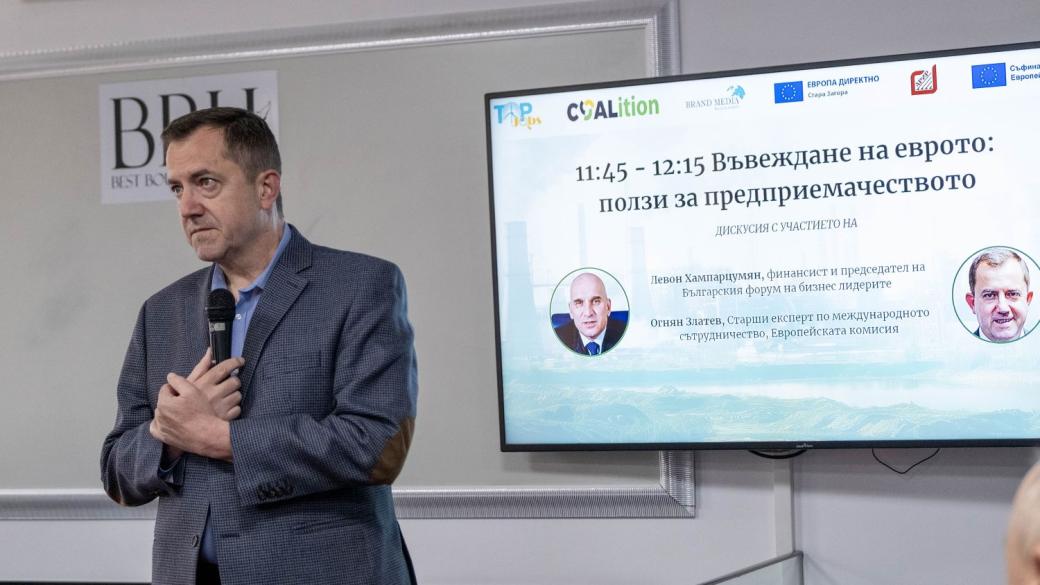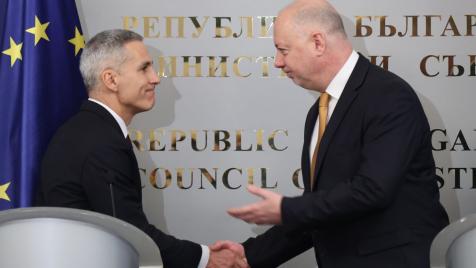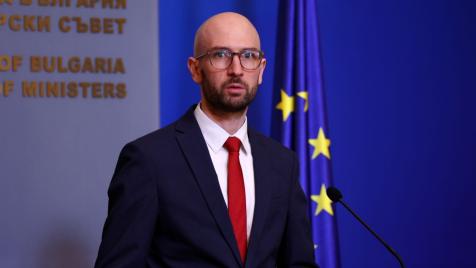The introduction of the euro in Bulgaria will not lead to a shock increase in prices
Joining the eurozone can only bring benefits to the future of Bulgaria and its people
Ognyan Zlatev, Senior Expert on International Cooperation at the European Commission:

© ECONOMIC.BG / Mirela Vavova
It has been statistically and scientifically shown that none of the countries that adopted the euro have experienced initial inflation spikes by more than half a percent. Ognyan Zlatev, Senior Expert on International Cooperation at the European Commission (EC), explained this during an expert lecture at the "Opportunities for Entrepreneurship in Stara Zagora" seminar.
He commented that even the news of 7% annual inflation in Croatia in 2024 (which was the last country to join the eurozone, in 2023) does not stem from the introduction of the new currency in the Balkan country.
Inflation did not increase because that country had entered the eurozone," said Zlatev.
He explained that the observed price surges were due to local speculators from different cities. "There were some pretty brutal examples," added the expert.
All the examples were of ladies who owned hair salons. Suddenly, what used to cost 5-6 euros the day before yesterday became 30 euros or more the following day," shared Zlatev.
According to him, this happened against the backdrop of a "fairly intensive information campaign" led by the Croatian government and central bank, which explicitly stated that there was an official exchange rate.
In the six months before the euro, there was an obligation for merchants to announce prices in both currencies to make the transition easier.
The prices did not change. The retail chains themselves voluntarily, without being forced, made a commitment at least 6 months in advance, and they even started thinking about it 8 or 9 months before the event," said Zlatev.
On the benefits of the euro
It makes great sense and benefits us to be part of a big family, where we all share the difficulties together, but we also share the benefits in the same way," added the senior expert at the European Commission.
In his words, if we now look at the big picture - not just in Germany or Europe - "no one will sit and wait for us" while Bulgaria stands on the sidelines of the processes passing by us.
We all want a better life now, or at least for our children and grandchildren. I continue to believe that the strategic choice that Bulgaria made by becoming an EU member and currently working towards ever closer integration into the EU is absolutely correct and will only bring benefits to us and to the future of the country," said Zlatev.
He added that the expected benefits are various, mostly economic, but also such that will change the lives of people and small and medium-sized businesses.
One such benefit is the elimination of the need for currency conversion when traveling even short distances abroad – for example, from Sofia to Thessaloniki – as well as bank fees when paying the semester tuition fee for a child studying at a foreign university.
These are seemingly small things, but they are very important and make everyday life easier," said Zlatev.
As for the convergence reports on Bulgaria's readiness to adopt the euro, expected on June 4, according to Zlatev, these will summarize what has been done so far by the institutions - the government, parliament and local authorities - but the country's real readiness depends on the extent to which the specific economic criteria for membership are met. On Wednesday, it became clear that Bulgaria has been consistently covering the price criterion for two consecutive months this year.
Joining the eurozone is based entirely on fulfilling specific economic conditions, regardless of the country," he stressed, adding that Bulgaria should have been more active on the issue a long time ago.
How important is the information campaign about the euro?
Zlatev is of the opinion that the main reason for the fears in Bulgarian society regarding the euro stems from the lack of information.
According to him, as much information as possible should be provided, with many details, and not just 1-2 times a day for 15 seconds on national television.
The information campaign should be more targeted – for example, having messages for small and medium-sized enterprises, for farmers, for students.
When information is presented purposefully, a person can understand it and it becomes clear to them," added Zlatev.
Co-funded by the European Union. Views and opinions expressed are however those of the author(s) only and do not necessarily reflect those of the European Union or the Managing Authority. Neither the European Union nor the Managing Authority can be held responsible for them.
Translated by Tzvetozar Vincent Iolov


 Simona Gotsova
Simona Gotsova 


